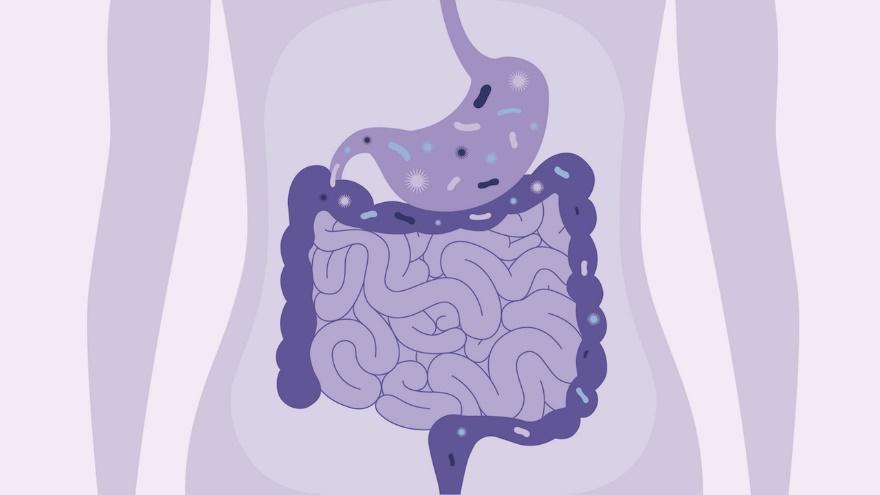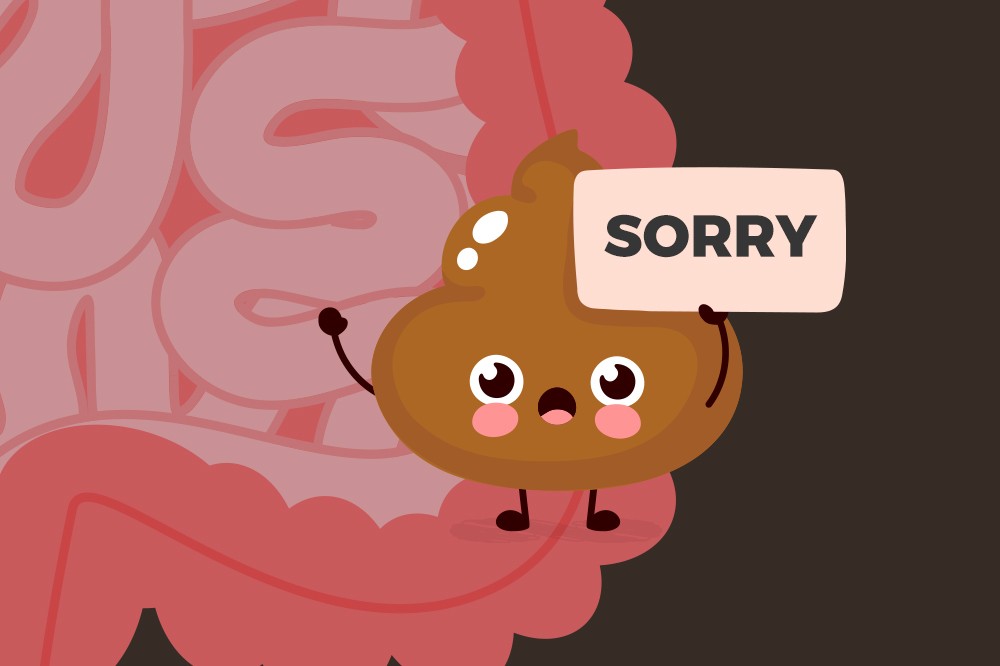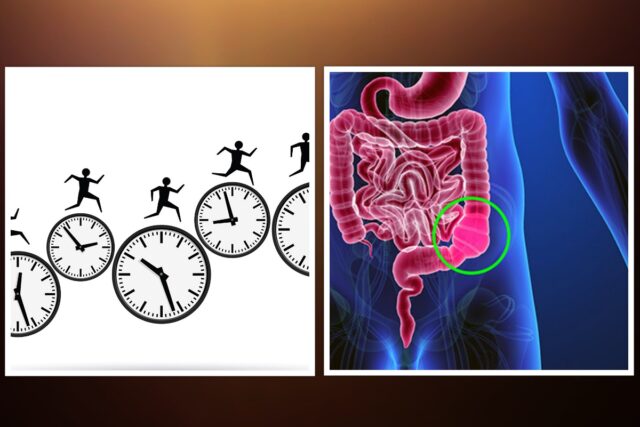In today’s fast-paced world, many of us spend a significant portion of our lives working in offices, often seated for extended periods. While office work offers numerous benefits, such as financial stability and professional growth, it also presents certain health challenges.
One of these challenges is constipation, a condition that affects millions of people worldwide.
Surprisingly, the sedentary nature of office work can contribute significantly to the development or exacerbation of constipation.
Today’s Contents:
Understanding Constipation:
Constipation is a common digestive issue characterized by infrequent bowel movements, difficulty passing stool, and a feeling of incomplete evacuation.

While occasional constipation is normal, chronic constipation can have a profound impact on one’s quality of life and overall well-being.
Several factors contribute to constipation, including diet, hydration, lifestyle, and underlying medical conditions.
However, one often overlooked factor is the sedentary nature of many modern occupations, particularly office jobs.
The Sedentary Lifestyle: Working in Offices for a Long Time
Office work typically involves prolonged periods of sitting, often in front of a computer screen.

This sedentary behavior can have detrimental effects on various aspects of health, including digestion. When we sit for extended periods, our metabolic rate decreases, leading to slower digestion and reduced muscle activity in the gastrointestinal tract.

Moreover, sitting for prolonged periods can compress the abdomen, leading to reduced blood flow to the digestive organs. This decreased circulation can impair intestinal motility, making it harder for food waste to move through the colon efficiently.
Impact on Bowel Movements:
- Regular physical activity stimulates bowel movements by promoting muscle contractions in the intestines.
- When we sit for most of the day, we miss out on these natural movements, which can contribute to constipation.
- Additionally, sitting for long periods can weaken the muscles of the pelvic floor, making it harder to pass stool effectively.

- Furthermore, the lack of movement can disrupt the body’s internal clock, known as the circadian rhythm, which regulates various physiological processes, including bowel function.
- Irregular work hours or working late into the night can confuse this internal clock, leading to disruptions in bowel habits and exacerbating constipation.
Poor Eating Habits In Office Environments:
- Office environments often foster poor eating habits, such as consuming highly processed foods, sugary snacks, and insufficient fiber.
- A diet lacking in fiber can exacerbate constipation by reducing stool bulk and slowing down transit time through the digestive tract.
- Additionally, inadequate hydration, often overlooked in busy work environments, can further contribute to constipation.
Preventive Measures:
Mitigating the risk of constipation associated with long-term office work involves implementing various strategies that promote healthy habits and counteract the negative effects of a sedentary lifestyle.
Here are several effective approaches to consider:
Stay Hydrated:
- Adequate hydration is essential for maintaining healthy bowel function.
- Drinking plenty of water throughout the day helps soften stool and facilitate its passage through the digestive tract.
- Aim to consume at least eight glasses of water daily, and consider keeping a water bottle at your desk as a reminder to stay hydrated.
Incorporate Fiber:
- Fiber is crucial for promoting regular bowel movements and preventing constipation.
- It adds bulk to stool, making it easier to pass, and helps regulate bowel function.
- Incorporate fiber-rich foods into your diet, such as fruits, vegetables, whole grains, legumes, nuts, and seeds.
- Aim to consume at least 25-30 grams of fiber per day for optimal digestive health.
Move Regularly:
- Break up long periods of sitting by incorporating movement into your daily routine.
- Take short breaks every hour to stand, stretch, or walk around the office.
- Consider using a standing desk or a balance ball chair to alternate between sitting and standing throughout the day.
- Regular physical activity stimulates bowel motility and helps prevent constipation.
Maintain Good Posture:
- Proper posture is essential for supporting optimal digestion and preventing discomfort.
- Sit with your feet flat on the floor, shoulders relaxed, and back straight to minimize strain on your spine and abdominal muscles.
- Avoid slouching or hunching over your desk, as this can compress the abdomen and impede digestion.
Establish a Routine:
- Establishing a regular eating and bowel movement schedule can help regulate your body’s natural digestive rhythms.
- Try to eat meals at consistent times each day and set aside time for bathroom breaks when you’re most likely to have a bowel movement, such as after meals or in the morning.
- Consistency is key to maintaining healthy bowel habits.
Consider Ergonomic Solutions:
- Invest in ergonomic office furniture and accessories to create a more comfortable and supportive work environment.
- Choose a chair with adjustable height and lumbar support to promote good posture and reduce strain on your spine.
- Position your computer monitor at eye level to prevent neck and shoulder discomfort.
- Ergonomic solutions can help alleviate physical discomfort and improve overall well-being in the workplace.
By incorporating these strategies into your daily routine, you can mitigate the risk of constipation associated with long-term office work and promote better digestive health.
Remember to prioritize self-care and listen to your body’s needs, making adjustments as necessary to support your overall well-being.
With mindful attention to healthy habits, you can thrive in the office while maintaining optimal digestive function.
Conclusion:
While office work offers numerous benefits, it’s essential to recognize and address the potential health consequences associated with prolonged sitting and sedentary behavior.
By adopting healthy lifestyle habits, such as staying active, eating a balanced diet, and staying hydrated, individuals can mitigate the risk of constipation and promote better digestive health, thereby enhancing their overall well-being in the workplace and beyond.



MOST COMMENTED
Animal-Based Proteins / Casein Protein / Dietary Protein / High-Protein Diets / Pea Protein / Plant-Based Proteins / Protein / Protein Deficiency / Protein Supplements / Proteins / Whey Protein / Whey Proteins
Is Protein Powder Safe for Teenagers and Children?
Animal-Based Proteins / Casein Protein / Dietary Protein / High-Protein Diets / Pea Protein / Plant-Based Proteins / Protein / Protein Deficiency / Protein Supplements / Proteins / Whey Protein / Whey Proteins
Unlock the Power of Proteins for Optimal Gut Health
Multivitamin
Total Health: Multivitamin for Active Lifestyles
Multivitamin
WellnessFusion: Complete Multivitamin Support
Dietary Supplement
Revitalize Your Health: The Magic of Red Yeast Rice Capsules
Foot care / Foot Health
Revitalize Your Foot Care Routine: Essential Tips for Optimal Foot Health
Foot Problem / Diabetics / Foot Health
Diabetics: Mastering Footwear Selection for Enhanced Foot Health and Ultimate Comfort
Exercises and Footwear Tips for Hammertoe Relief / Foot care / Foot Health / Foot Pain / Foot Problem / Hammertoes
Unlock Effective Exercises and Footwear Tips for Hammertoe Relief
Hammertoes / Foot Health / Foot Pain / Foot Problem
Unlock Relief: Essential Guide to Hammertoes Causes, Symptoms, and Treatments
Foot Problem / Foot Health
Revolutionize Your Recovery: Natural Remedies for Plantar Fasciitis – Fresh Home Keepers